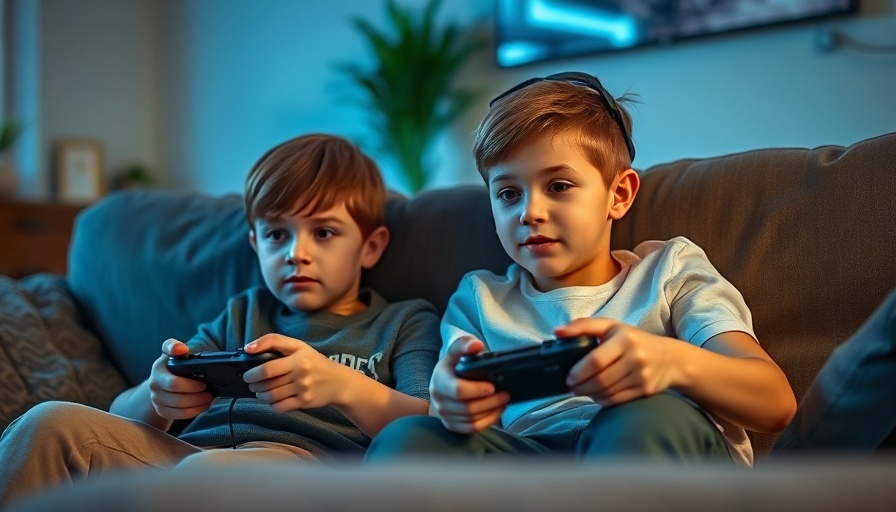
Understanding the Rising Challenge of Video Game Addiction
As technology continues to evolve, the influence of video games on our children's lives has become a pressing concern for many parents. Recent trends show that video game addiction is no longer solely a teenage issue; preteens are increasingly falling prey to compulsive gaming behaviors. The World Health Organization officially classified gaming disorder in 2018, acknowledging its growing impact on mental health and well-being. This compulsive behavior disrupts relationships, education, and physical health, leading to a need for proactive parental guidance.
Recognizing the Signs: How to Identify Video Game Addiction
Parents often wonder how to spot whether their child is struggling with gaming addiction. The symptoms can manifest in a variety of ways, including:
- Excessive Gaming Time: If your child is frequently seen abandoning homework or family activities to play games, it's a sign they may be addicted.
- Physical Health Issues: Complaints about posture, headaches, or trouble sleeping could be linked to prolonged gaming sessions.
- Emotional Changes: Mood swings, irritability, or withdrawal when gaming time is restricted indicate compulsive habits.
- Social Withdrawal: If your child avoids friends and family in favor of gaming, it indicates a need for intervention.
Recognizing these cues can empower parents to take steps early and effectively.
The Critical Role of Open Communication
Creating an environment of trust starts with open communication. Regular, non-judgmental discussions about gaming habits—where parents ask questions and validate feelings—can help preteens feel supported rather than criticized. Discussing feelings about games, competition, and peer pressure allows children to express themselves freely. Research shows that when children feel comfortable discussing their gaming experiences, they become more receptive to boundaries and alternatives.
Establishing Healthy Boundaries for Gaming
Setting healthy limits on screen time is essential for developing a balanced lifestyle. Researchers recommend parents implement rules that restrict gaming to certain hours and encourage regular breaks during gaming sessions. This fosters a healthy balance between gaming, schoolwork, and personal interaction. For instance, designating specific hours for homework and family time can counteract excessive gaming behaviors.
Encouraging Offline Activities: Breaking the Cycle
Identifying and promoting alternative activities can be transformative in combating gaming addiction. Encourage your preteen to explore various interests like sports, arts, or reading. This not only helps them discover new passions but also strengthens family bonds and encourages social interaction. Engaging in nature, team sports, or creative hobbies provides healthy outlets for energy and can help ease reliance on video games as a primary source of enjoyment.
Seeking Professional Help When Necessary
For some families, professional intervention may be necessary. Family therapy and cognitive-behavioral therapy have shown success in helping kids manage gaming urges. A mental health professional can guide families through underlying emotional and social issues contributing to addiction. Don't hesitate to seek help from guidance counselors or mental health professionals if gaming is leading to severe emotional distress or academic decline.
Fostering a Balanced Digital Environment
Finally, as parents, modeling balanced technology use is crucial. Demonstrating healthy habits surrounding tech use encourages the same behaviors in children. Parents and caregivers must establish clear guidelines, promote educational apps, and remain actively involved in their children's gaming choices. Together, family discussion, boundary setting, and open communication can steer preteens towards healthier gaming habits.
Overcoming video game addiction is no small feat but committing to proactive parenting can guide our children towards a balanced relationship with technology. By recognizing the signs, fostering communication, and supporting healthy habits, parents can empower their children to navigate these digital landscapes safely and responsibly.
 Add Row
Add Row  Add
Add 




Write A Comment